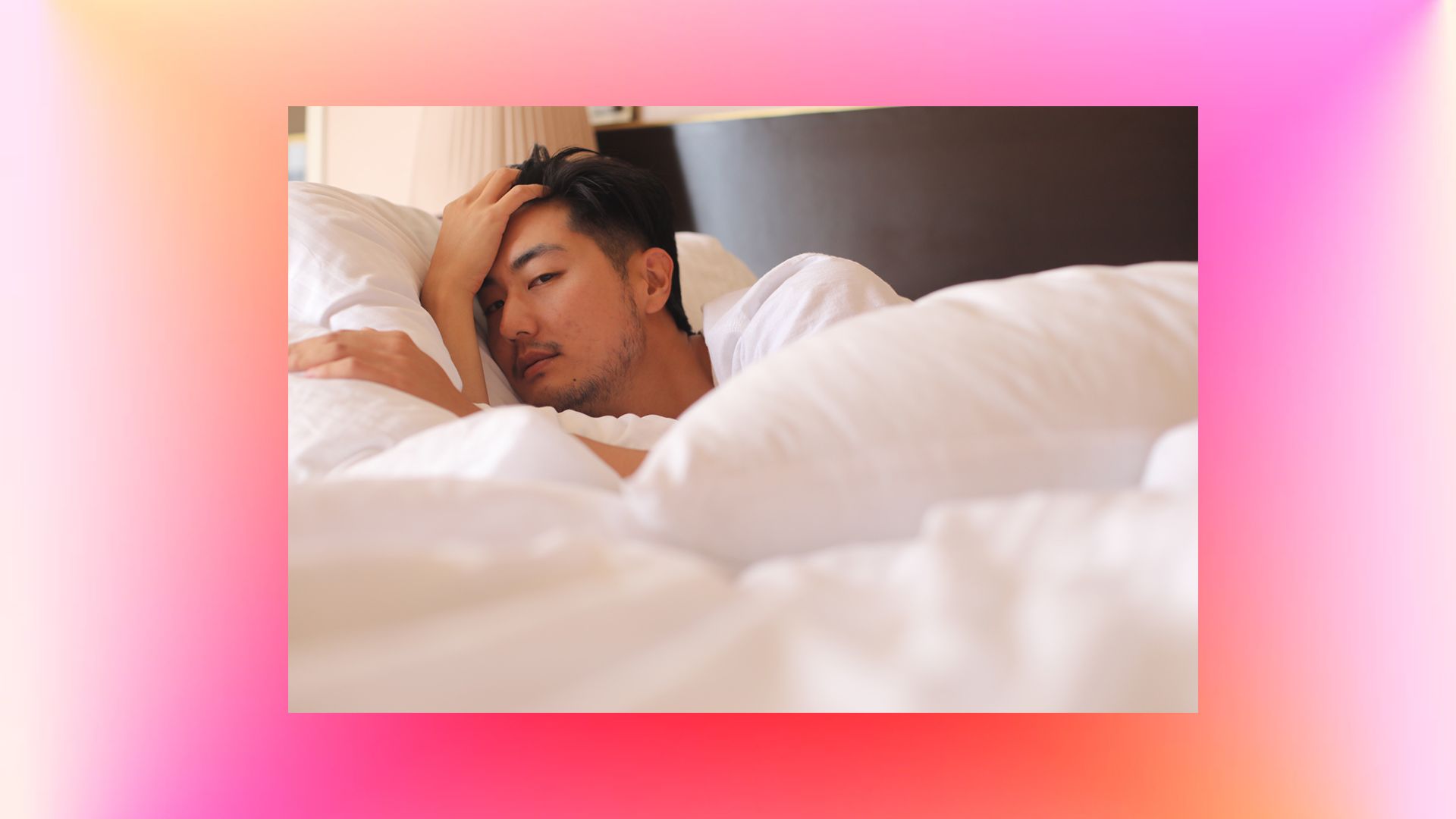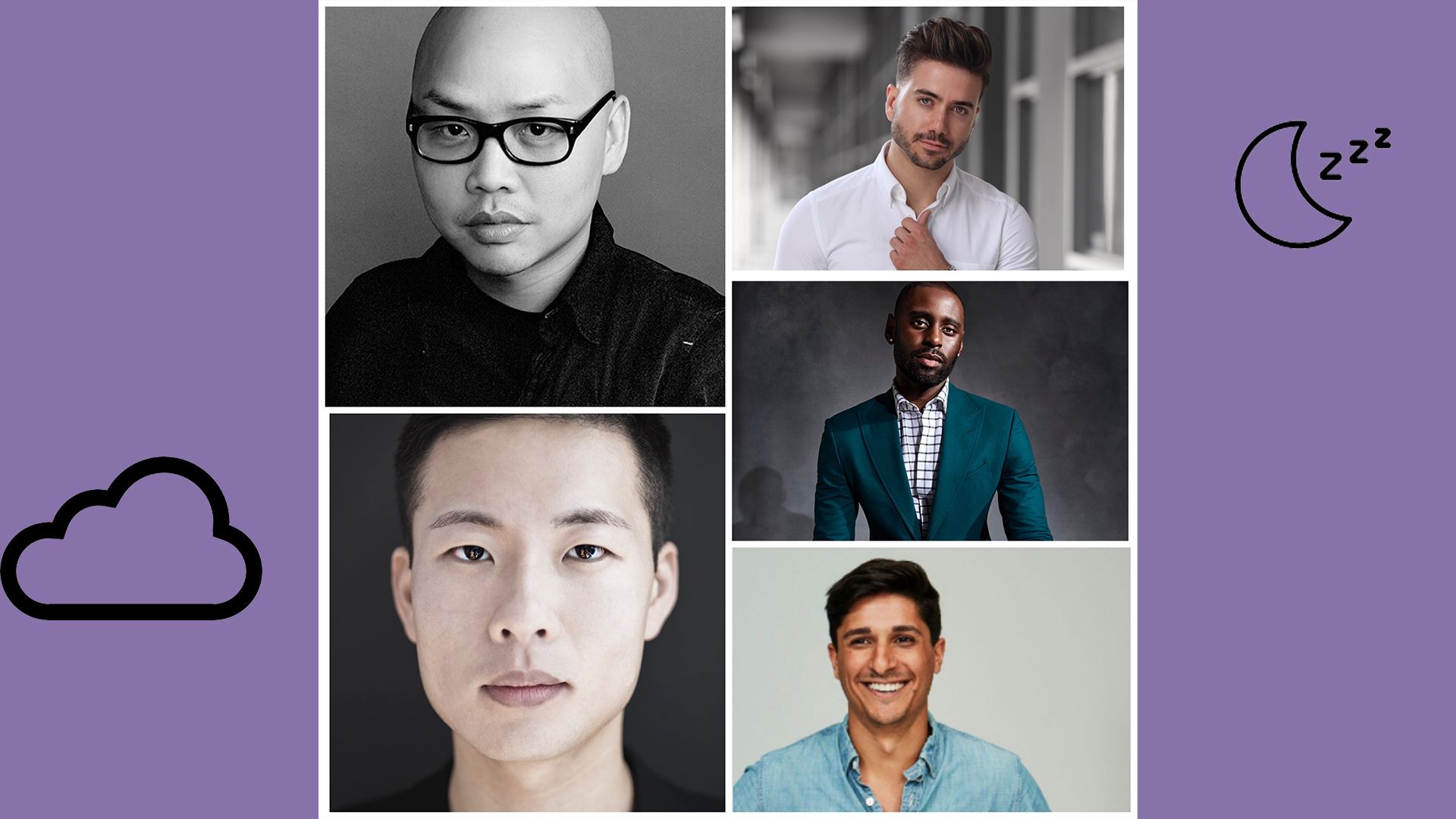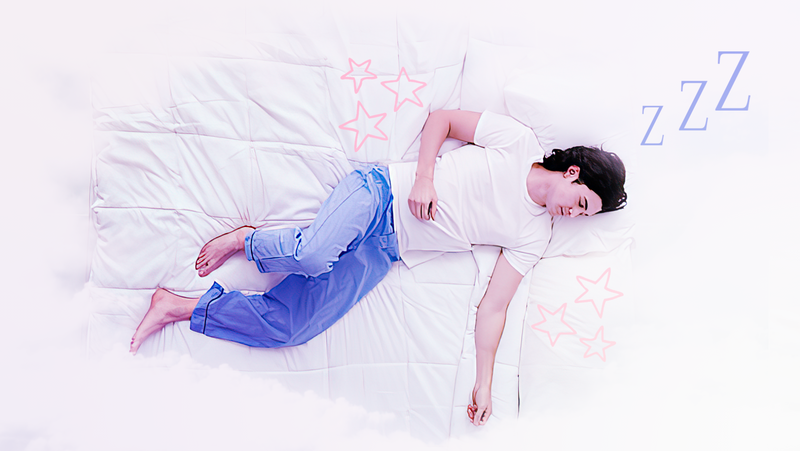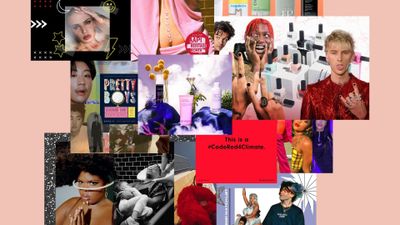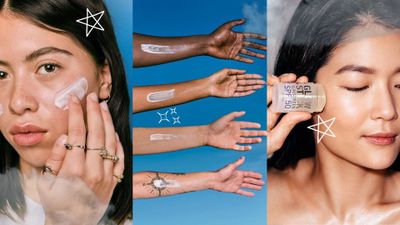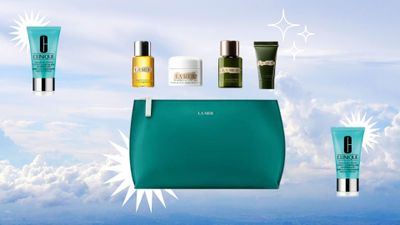Imagine this: you toss and turn for hours before finally—exhausted from watching TikToks and scrolling on Instagram—falling asleep.
Struggling to fall asleep is a universal experience. According to NPR, over sixty million Americans suffer from insomnia. That’s a whole lot of sleepless nights. Having a nighttime routine can certainly help, whether that’s reading a book before bed, limiting screen time, or doing a relaxing nighttime skincare routine. But even with a calming PM regimen, most people still struggle to fall asleep.
SEE ALSO: How self-isolation is messing with your skin and what you can do
There are tons of remedies out there to encourage healthy sleep cycles, from pillow sprays to sleep masks and everything in between. But we have to ask: are these things really helping us sleep? Are going face down on these sleep sprays encouraging acne? What effect are they having on our skin?
We tapped Dr. Joshua Zeichner, director of Cosmetic & Clinical Research in Dermatology at Mount Sinai Hospital in New York City, to help us debunk this important question: are sleep products ruining your skin?
1. Pillow Sprays
Pillow sprays are basically just scented water in a cute spray bottle. However, many have found that using a pillow spray can improve the length and quality of sleep. Byrdie’s Chloe Burcham conducted her own experiment to test several popular pillow sprays while simultaneously monitoring her sleep with a sleep-tracking app. She concluded that though some sprays did nothing, others gave her a noticeably better night’s sleep.
Though Chloe found conclusive results on her sleep, she did not mention the likely effects on her skin. “Pillow sprays typically contain blends of essential oils that provide aroma-therapy like benefits,” says Dr. Zeichner. Though essential oils such as lavender and chamomile can help many people relax, these oils can also be harmful to the skin.
Dr. Zeichner is hesitant to recommend these products: “I am cautious in recommending them to people who have sensitive skin because the oils may lead to skin irritation.” Weigh your priorities: these sprays may improve sleep, but at the cost of flare-ups or irritation on the skin.
2. Sleep Masks
I personally used to swear by sleep masks, especially when I was living in a college dorm room and would often have to fall asleep with the lights on. However, I would often wake up to find breakouts on my forehead and nose, right where the mask laid on my face.
If you find a sleep mask necessary for snoozing, fabric and fit are key factors to consider. Dr. Zeichner recommends extremely soft fabrics like silk, which are gentle on the skin. Stay away from synthetic materials.
“I do not recommend wearing synthetic sleep masks because those fibers tend to be more irritating on the skin,” he says. “If you are going to wear one, invest in one that will block out the light but also keep the skin in good shape.”
3. Specialty Pillowcases
Specialty pillowcases made of copper, silk, and even silver claim improvement not only for sleep quality, but hair and skin as well. Are these really so much better than my $10 Target pillowcases? Sometimes.
“Ultrasoft fabrics like silk or satin are a good option if you have acne because they reduce friction against your skin which can lead to irritation and skin inflammation,” says Dr. Zeichner.
However, don’t be swayed by marketing tactics: acne-fighting pillowcases are a scam. “If a pillowcase could truly clear up acne, then the dermatologists would be out of a job,” says Dr. Zeichner. “Some pillowcases contain silver embedded fibers that may provide antimicrobial properties, but the likelihood of them affecting acne-causing bacteria that lives deep in the follicles is slim.”
How to get a better night’s sleep (without ruining your skin)
So, is sleeping ruining your skin? In short, the answer is: maybe. Sleep products can have a negative effect on the skin, but it’s completely dependent on what products you’re using. The good news? There are plenty of sleep remedies out there that have no effect on the skin – and there are also bedtime rituals that can promote healthy skin throughout the night. Here are some practices to try out in the evening.
1. Decrease your artificial light
According to Science Daily, 95% of Americans use some type of electronics within the hour before bed at least a few nights each week. Even though scrolling on your phone may make you feel a bit sleepy in the early hours of the morning, it can actually harm your health.
“Artificial light exposure between dusk and the time we go to bed at night suppresses the release of the sleep-promoting hormone melatonin, enhances alertness and shifts circadian rhythms to a later hour – making it more difficult to fall asleep,” Dr. Charles Czeisler of Harvard Medical School tells Science Daily.
One easy way to improve sleep? Leave your phone behind when you get into bed. Pick up a book or a magazine when you’re winding down in the hour or so before your bedtime. Decreasing screen time will increase healthful, restful sleep, with no possible effect on your skin.
2. Have a nighttime skincare regimen
“We know that the skin undergoes daily circadian rhythms where specific activities occur in the morning and others in the evening,” says Dr. Zeichner. “The night is a time of rest and repair, so I recommend applying topical retinoids before bed to enhance the cell turnover that is naturally happening to a higher degree while we are sleeping.”
After you cleanse but before you dive under the covers, apply the creams, lotions, gels, or serums that work best for you. And don’t forget the most important step: moisturizer. “Skin hydration starts to decline in the afternoon into the evening so I always recommend a night moisturizer,” says Dr. Zeichner. Having a routine is a great way not only to tend to your skin, but to alert your body that it’s time to wind down.
3. Build in some zen time
Don’t find skincare relaxing? There are tons of other ways to develop a nighttime routine that will get you feeling zen and therefore, sleepy. As I myself can attest, drinking tea can actually help you to get sleepy before bed. Chamomile, valerian root, and lavender—which are also common essential oils—can be ingested through a warm cup of tea rather than sprayed on your pillow.
Warm baths or showers in the hour before bed are also a great option. Immersion in hot water actually works to change your body’s core temperature so that you go to bed with a lower temperature, making you far less likely to toss and turn in your hot, sweaty sheets.
And, as always, we love any good meditation! Headspace and Calm offer specific meditations for restful sleep – a much better option than finding yourself stuck counting sheep at two in the morning.
READ MORE LIKE THIS
